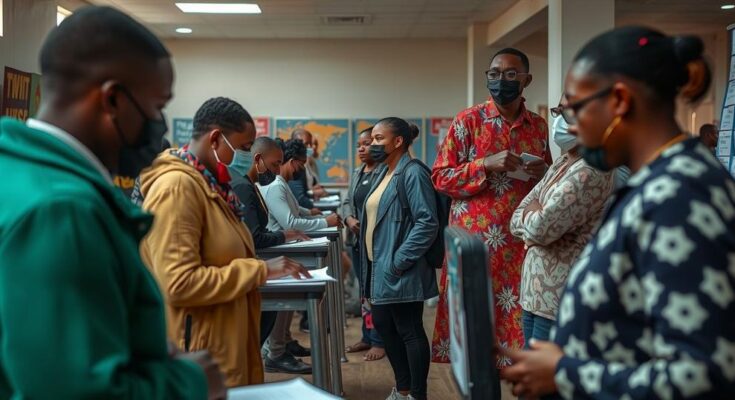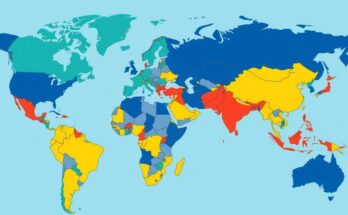Botswana’s upcoming elections on October 30 occur amid rising unemployment, declining satisfaction with democracy, and increasing corruption perceptions, particularly affecting the presidential office. With a divided opposition and entrenched ruling party leadership, citizens express urgent demands for transformative change to restore trust and address socioeconomic inequalities. The election outcome could have significant implications for Botswana’s democratic integrity and governance model.
As Botswana approaches its pivotal elections on October 30, the exigent need for leadership that transcends political strife becomes acutely evident. The nation’s rising unemployment, coupled with a significant decline—approximately 40 percent—in citizens’ satisfaction with democracy over the last decade, highlights growing public unease. Furthermore, nearly 80 percent of Batswana express concerns regarding corruption within the presidential office, underscoring a shift from the nation’s once-cherished democratic principles realized since its independence in 1966. While Botswana has achieved remarkable progress, challenges persist, exacerbated by external elements such as dwindling diamond revenues and escalating climate-related droughts. The government has not sufficiently addressed economic inequality or diversified its economic base. As inefficiencies plague critical infrastructure investment and leadership grapples with repeated policy changes, concerns regarding integrity and governance have also arisen. With deteriorating perceptions of transparency, Botswana risks losing its appeal to international investors. Demands for transformative change resonate throughout the continent as dissatisfaction mounts against the ruling Botswana Democratic Party (BDP), which has held power for nearly 60 years. Despite a divided opposition, the likelihood of President Masisi’s re-election remains high, raising concerns about the broader implications for democracy, where the populace may lose faith in elections to provide accountability. The protracted conflict between President Masisi and former President Ian Khama illustrates a troubling trend in which personal rivalries overshadow significant governance issues. As articulated by Masisi previously, “Botswana is much more important than anybody’s ego” – Council on Foreign Relations. Such sentiments are undermined by the reality of egocentric politics that could jeopardize Botswana’s hard-won reputation as a model of good governance amid a resource curse.
The backdrop to these elections in Botswana is characterized by a concerning mix of economic and political instability. The nation, which has been a paragon of democratic governance and economic growth in Africa, is now confronting a series of challenges, including climbing unemployment rates, stagnant economic diversification efforts, and severe public mistrust in democratic institutions. The historical success narrative—transitioning from low development at independence to a stable upper middle-income status—now faces potential derailment as citizens observe declining satisfaction and increasing corruption perceptions. This sets the stage for a crucial electoral context where the stakes for the future of Botswana’s governance and democratic integrity are significantly high.
In summary, Botswana stands at a crossroads with its impending elections, facing pressing challenges that necessitate a decisive shift in political approach and efficacy. The citizens’ call for reform is amplified by growing dissatisfaction with the current leadership, alongside pervasive issues of corruption and economic distress. The potential re-election of President Masisi, amidst personal rivalries and entrenched incumbency, poses a critical threat to the fabric of democratic accountability. It is imperative that the next leadership prioritize the restoration of public trust and commitment to addressing the socioeconomic issues facing the nation, reinstating its status as a beacon of good governance in Africa.
Original Source: www.africa.com




